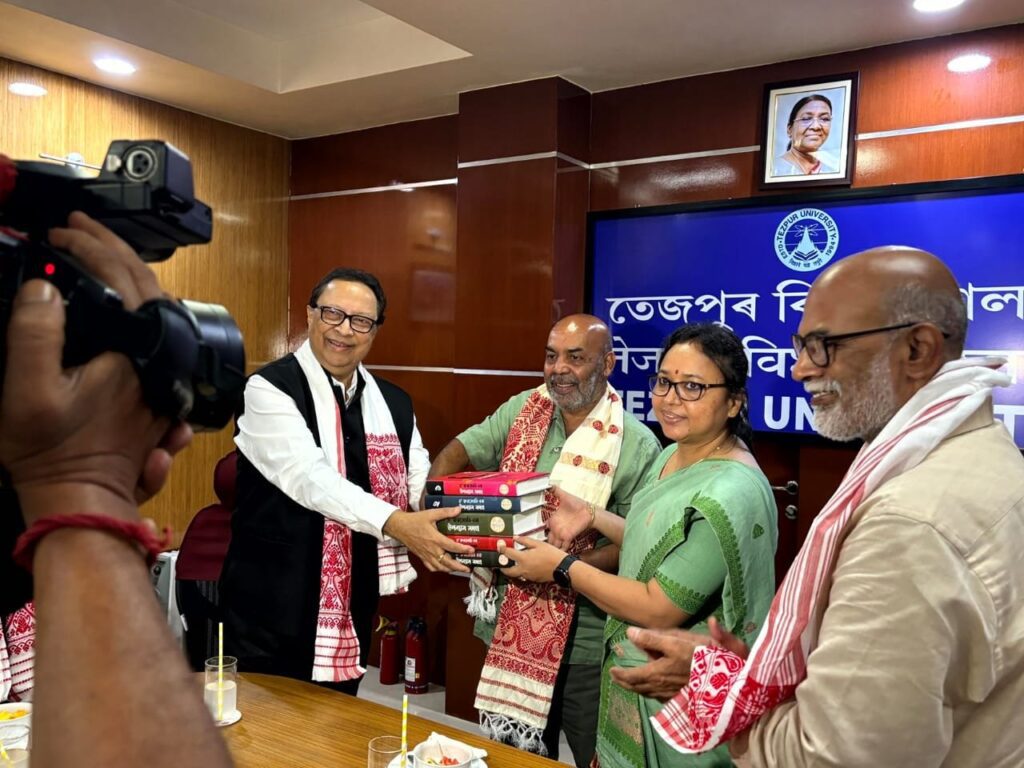Tezpur University (TU) and Srimanta Sankaradeva University of Health Sciences (SSUHS) today (July 30, 2024) signed a Memorandum of Understanding (MoU) focusing on collaborative research, academic exchange, and capacity-building initiatives. The MoU was signed by Prof. Shambhu Nath Singh, Vice Chancellor of TU, and Prof. Dhruba Jyoti Borah, Vice Chancellor of SSUHS, in the presence of Deans, Heads, and other officials from both universities.
Speaking on the occasion, Prof. Shambhu Nath Singh, Vice Chancellor of TU, said, “This MoU represents a significant milestone in our journey towards enhancing healthcare education and research. By joining hands with SSUHS, we aim to leverage our combined expertise to address critical health issues and improve the quality of education in this field.”

Prof. Dhruba Jyoti Borah, Vice Chancellor of SSUHS, said, “We are excited about this partnership with Tezpur University, which opens new avenues for research and academic excellence. Both institutions should aim to contribute to cutting-edge research that addresses current challenges, pushes the boundaries of understanding, and generates new insights.”
Prof. Dhanapati Deka, Dean of Research & Development at TU, mentioned that the MoU has ample scope in areas like Biomedical Engineering, Health and Medicine, Molecular Biology and Biotechnology, Computer Science and Engineering, and Artificial Intelligence, among others. Dr. Biren Das, Registrar, TU, emphasized that both institutions should now facilitate the exchange of researchers, scholars, and experts to engage in collaborative research projects and provide access to R&D research laboratories, equipment, and facilities.
During the occasion, Prof. Dhruba Jyoti Borah, a noted writer and former president of Asom Sahitya Sabha, presented the university with his collection of writings.
The MoU will be effective for an initial period of three years, with the possibility of renewal based on the progress and outcomes of the collaborative initiatives.